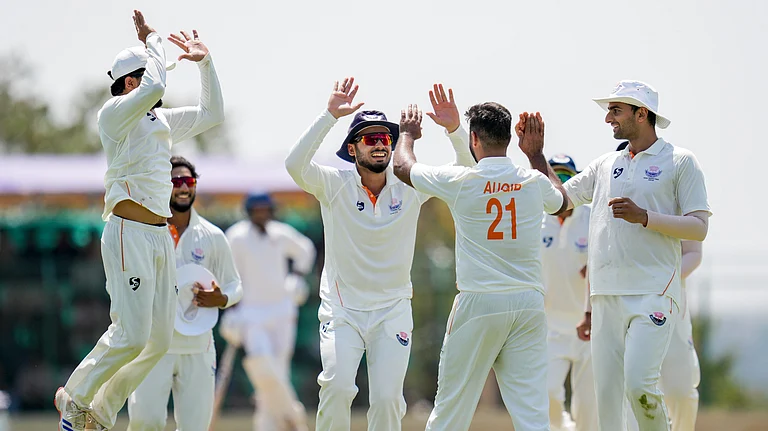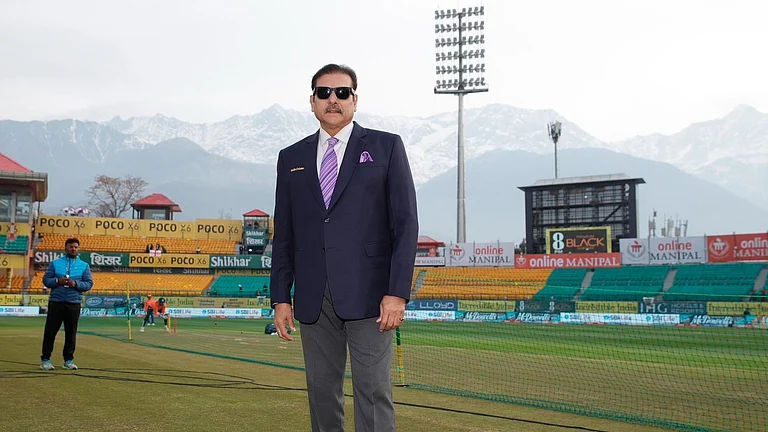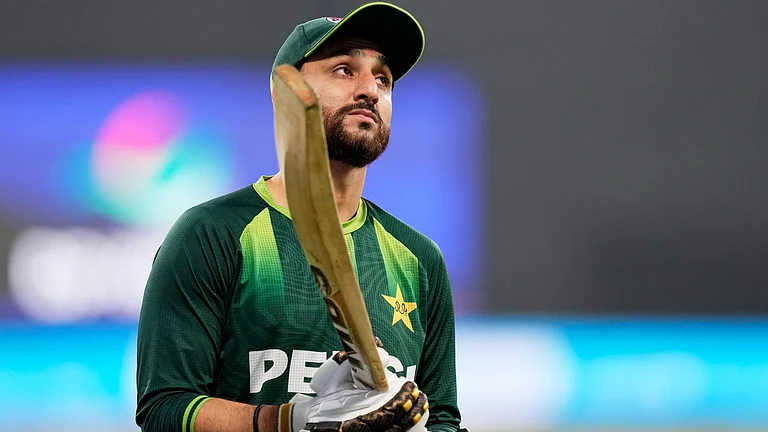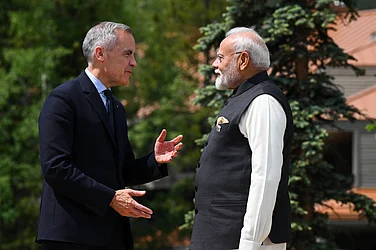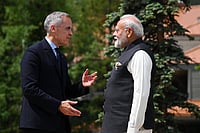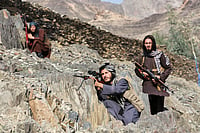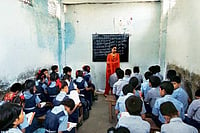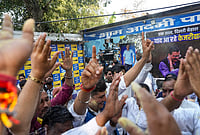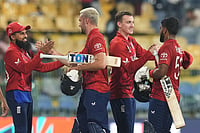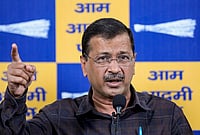THE past fortnight may have seen the first real manifestation of prime minister Atal Behari Vajpayee's assertiveness, but, ironically, it has also been a period during which the prospect of a mid-term poll in 1999 has gained currency.
Sure, trouble within the Sangh parivar and its various affiliates, ally sabrerattling and the Congress waiting to pounce are phenomena that have been prevalent ever since the coalition took office. But these developments have acquired a shrillness not seen in the past. What is discernible is an inexorable march of events towards the denouement—only reconfirmed by the PM's observations, twice in the past month alone, that he is ready for a mid-term poll.
And the trouble begins at home, with senior BJP leaders talking about a post-Budget collapse and consequent polls. It started with Vajpayee finally deciding to be his own man. So, the Insurance Regulatory Bill will be tabled in its original form; he emphasised that Article 370 will not be touched (contrary to the BJP's pet position) during a recent visit to Kashmir; issued a strongly-worded statement condemning attacks on Christians; called for introspection on Ayodhya on December 6 and insisted that Kalyan Singh take action against his education minister on the Saraswati vandana issue.
But already, hardliners furious at the insurance bill are putting out that the government will have to go back on the positive indications it gave a couple of months ago on Foreign Direct Investments in the tobacco sector, and remove the ban on selling common, noniodised, salt. "We are expecting both moves in the winter session of Parliament," says a Sangh functionary. Giving an indication of things to come, the RSS top brass has come out in defence of the UP minister sacked by Kalyan. And the pressure will only increase.
ON the other hand, the PMO, Vajpayee's men in the Cabinet and his trusted allies, including George Fernandes, S.S. Barnala and R.K. Hegde, have begun acting in tandem to show their commitment to governance. As I&B minister Pramod Mahajan puts it: "There may be differences between the party and government and some misunderstandings that need to be sorted out, but all of us, including myself, will naturally support the government."
Even home minister L.K. Advani has extended support to these moves. His associates term it a "natural corollary" of his attempt to "convert the BJP into a party of governance". The media, meanwhile, is speculating that Advani's "softening" has to do with the realisation that Hindutva has reached electoral saturation. The fact is he has supported the insurance bill because it shows "commitment to the reforms", named the VHP in Parliament while promising to protect the Sufi shrine in Karnataka and, crucially, leaned on Rajju Bhaiya to go easy at Nagpur. Advani seems to have taken the line that the BJP's failures will also reflect adversely on the Sangh.
That doesn't alter the fact, however, that the Sangh and BJP hardliners are in a mood to take on Vajpayee's "threat" of a midterm poll. Though BJP leaders like senior vice-president K.L Sharma claim that "the PM just mentioned it (mid-term polls) in passing", speculation is rife that the fallout of the proposed January cabinet expansion will set the clock ticking.
According to hardliners, the price rise that will inevitably follow the Budget, or the September 1999 deadline for the ratification of the CTBT when the Vajpayee administration will get stick either way, are the dates "we are looking at as likely for a poll". Assuming, of course, the Congress doesn't want to do the BJP a favour by trying to cobble together a government. But that would need allies—the danger area.
While the anti-Congressism of the BJP's major allies such as the Akali Dal, Samata Party, BJD and the TDP provide some breathing space for Vajpayee, the numbers in the Lok Sabha are such that even numerically smaller allies can cause big problems.
And perennially troublesome ones like J. Jayalalitha and Mamata Banerjee have revealed their thought processes in their recent actions. Jayalalitha has accused the BJP of a "divide and rule" policy, unilaterally disbanded the front she leads in Tamil Nadu (which includes the BJP), criticised Vajpayee for not doing enough on the women's reservation Bill, praised the Congress, which has "like the AIADMK" reserved 33 per cent seats in the party organisation for women and supported the nationwide bandh called by the Opposition last Friday against the government. Even TMC chief G.K. Moopanar has begun praising "the constructive attitude" adopted by her and politicians in Tamil Nadu are convinced that 'Amma' seeks a Congress-AIADMK alliance with tacit support from the TMC for the next poll, which she feels will be soon.
Even Mamata finally took the plunge and emerged as the chairperson of the Progressive Front—the BJP's support team of nonallies—all of whom swear by "Congress ideology" and are extending support to Vajpayee "only for stability".
While both Jayalalitha and Mamata have been quick to add that they would not be the cause for the fall of the Vajpayee government, it is clear that they are preparing for the worst. Both these "troublesome allies" also scuppered the BJP's plans for its deputy speaker by backing P.M. Sayeed.
Optimistic Congress floor managers speak of the "disgruntled elements" within even the Samata Party and Biju Janata Dal (despite the patch-up) and admit they are looking for options "when the Vajpayee government falls". The TDP—lacking in options as it is—is now toeing a tougher line. Says general secretary Lal Jan Basha, "everybody knows the circumstances under which we gave support to the BJP—both it and the Congress are our enemies. The day the government deviates from the agenda my party will withdraw support." Then, Vajpayee has to deal with Opposition attempts to topple the Uttar Pradesh and Maharashtra governments and deal with his own party MPs from Uttarakhand and Jharkhand who are in a rebellious mood.
With hardliners and unpredictable allies threatening to tear his administration asunder, Vajpayee is, say aides, in a mood to take on all comers. "Of course he is keen to take various elements of the Sangh along and will make efforts to do so, but not beyond a point," offers an aide. If he keeps to this, it will be the beginning of the end.







